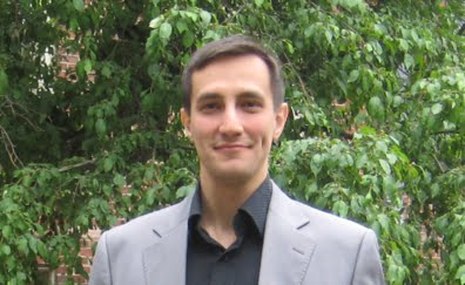Selçuk Köse
Professor
Electrical and Computer Engineering
University of Rochester

Selçuk Köse is a Full Professor in the Department of Electrical and Computer Engineering, University of Rochester, Rochester, New York after spending almost 7 years
in the Department of Electrical Engineering, University of South Florida, Tampa, Florida, first as an Assistant Professor (2012-2018) and then as an Associate Professor (2018-2019).
Selçuk received NSF CAREER award (2014), USF College of Engineering Outstanding Junior Research Achievement Award (2014), USF Outstanding Faculty Award (2016), Cisco Research Award (2015, 2016 & 2017) and USF Outstanding Research Achievement Award (2017). He is/was as an associate editor for the IEEE Transactions on Circuit and Systems 1: Regular Papers, Springer Nature Computer Science, Journal of Circuits, Systems and Computers, and Microelectronics Journal.
He was a part-time Engineer with the VLSI Design Center, Scientific and Technological Research Council (TUBITAK), Ankara, Türkiye, where he worked on low power ICs in 2006. During the summers of 2007 and 2008, he was with the Central Technology and Special Circuits Team in the enterprise microprocessor division of Intel Corporation, Santa Clara, California, where he was responsible for the functional verification of a number of blocks in the clock network including the de-skew machine and optimization of the reference clock distribution network. In summer 2010, he worked in the RF, Analog, and Sensor Group, Freescale Semiconductor, Tempe, Arizona, where he developed design techniques and methodologies to reduce electromagnetic emissions.
His current research interests include hardware security with a specific focus on side-channel attacks, fault injection attacks, covert channel attacks, individual and combined countermeasures, physically unclonable functions, true random number generators, and hardware Trojans; on-chip power delivery/distribution, voltage regulators, decoupling capacitors; cryogenic electronics and quantum computing; emerging technologies such as graphene nanoribbon transistors (GNRFETs); nature inspired computing including design, fabricate, and test CMOS based Ising machines to solve various NP-hard and NP-complete problems (LDPC, 3SAT, MaxSAT, MaxCut, etc), and 3-D integration. His research is/was supported by National Science Foundation (NSF), Semiconductor Research Corporation (SRC), Department of Energy (DoE), Defense Advanced Research Projects Agency (DARPA), Cisco Research, Florida Center for Cybersecurity (FC2) grants, and Florida High Tech Corridor.
Selçuk received NSF CAREER award (2014), USF College of Engineering Outstanding Junior Research Achievement Award (2014), USF Outstanding Faculty Award (2016), Cisco Research Award (2015, 2016 & 2017) and USF Outstanding Research Achievement Award (2017). He is/was as an associate editor for the IEEE Transactions on Circuit and Systems 1: Regular Papers, Springer Nature Computer Science, Journal of Circuits, Systems and Computers, and Microelectronics Journal.
He was a part-time Engineer with the VLSI Design Center, Scientific and Technological Research Council (TUBITAK), Ankara, Türkiye, where he worked on low power ICs in 2006. During the summers of 2007 and 2008, he was with the Central Technology and Special Circuits Team in the enterprise microprocessor division of Intel Corporation, Santa Clara, California, where he was responsible for the functional verification of a number of blocks in the clock network including the de-skew machine and optimization of the reference clock distribution network. In summer 2010, he worked in the RF, Analog, and Sensor Group, Freescale Semiconductor, Tempe, Arizona, where he developed design techniques and methodologies to reduce electromagnetic emissions.
His current research interests include hardware security with a specific focus on side-channel attacks, fault injection attacks, covert channel attacks, individual and combined countermeasures, physically unclonable functions, true random number generators, and hardware Trojans; on-chip power delivery/distribution, voltage regulators, decoupling capacitors; cryogenic electronics and quantum computing; emerging technologies such as graphene nanoribbon transistors (GNRFETs); nature inspired computing including design, fabricate, and test CMOS based Ising machines to solve various NP-hard and NP-complete problems (LDPC, 3SAT, MaxSAT, MaxCut, etc), and 3-D integration. His research is/was supported by National Science Foundation (NSF), Semiconductor Research Corporation (SRC), Department of Energy (DoE), Defense Advanced Research Projects Agency (DARPA), Cisco Research, Florida Center for Cybersecurity (FC2) grants, and Florida High Tech Corridor.

